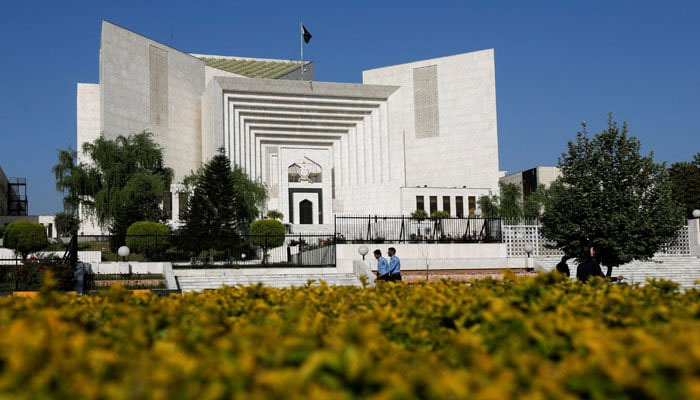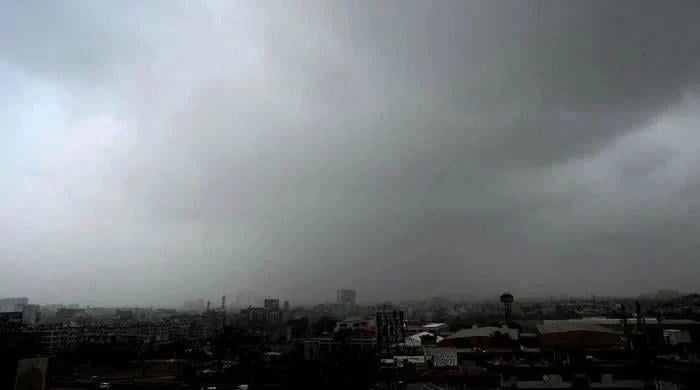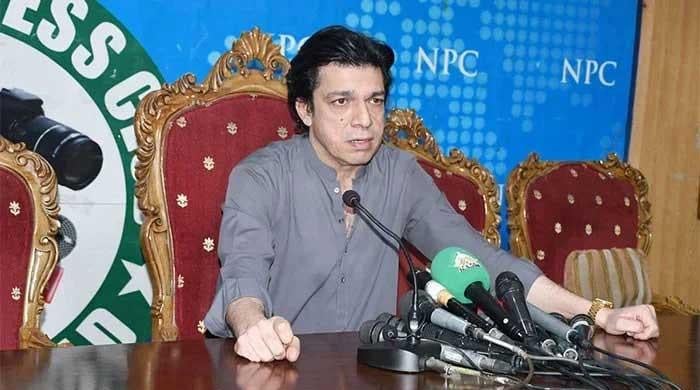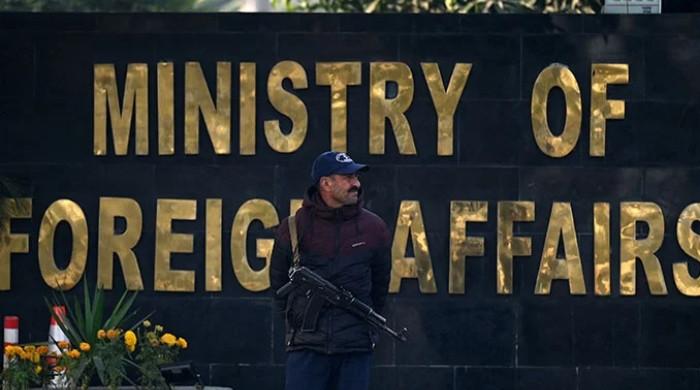President not bound to act on PM’s advice for fixing election date, rules Supreme Court
Apex court also observes president is not a mere mouthpiece for anyone else, adding that he was discharging his constitutional responsibility
June 12, 2023

The Supreme Court, in its detailed judgment in suo motu regarding the holding of general elections to the provincial assemblies of Punjab and Khyber Pakhtunkhwa (KP), has said that the president is not bound to act on the advice of the prime minister for fixing a date for the elections in the country.
In a 57 page-detailed verdict, the five-member bench of the apex court headed by Chief Justice Justice Umar Ata Bandial and comprising Justice Syed Mansoor Ali Shah, Justice Munib Akhtar, Justice Jamal Khan Mandokhail and Justice Muhammad Ali Mazhar, observed, “The president, in exercising the power conferred by S. 57(1) and thereby discharging a constitutional obligation and responsibility is empowered to act on his own and is not bound by advice in the constitutional sense.”
Amid delay from the Election Commission of Pakistan (ECP) over the date for elections, President Dr Arif Alvi in February unilaterally announced April 9 as the date for holding polls in KP and Punjab — the move was rejected by the ruling alliance parties.
On February 27, CJP Bandial remarked that parliament had clearly written in the Elections Act, 2017, that the president can announce the date for polls. The CJP's remarks came during the suo motu hearing related to the elections in KP and Punjab.
In March, the president announced April 30 as the date for the general polls in Punjab, hours after the Election Commission of Pakistan (ECP) proposed dates for the election in the province as directed by the top court.
Meanwhile, a Supreme Court's three-member bench headed by CJP Bandial and comprising Justice Ijaz Ul Ahsan and Justice Munib Akhtar as members declared the ECP's decision to hold polls on October 8 instead of April 30 illegal.
"Neither the Constitution nor the law empowers the commission to extend the date of elections beyond the 90 days period as provided in Article 224(2) of the Constitution," said the verdict.
In today's verdict, the apex court observed that the president is not a mere mouthpiece for anyone else, adding that he is acting on his own, and discharging his constitutional responsibility.
Referring to the election date fixed by the president, the Supreme Court said: “The ‘announcement’ is not a mere formality but a substantive act.”
The top court observed, “The order of the president dated 20.02.2023 is constitutionally competent and subject to what is observed below, it is hereby affirmed insofar as it applies to the Punjab Assembly; but the same is constitutionally invalid insofar as it applies to the KP Assembly and is therefore hereby set aside. It also follows that the governor of KP province, inasmuch as he has not appointed a date for the holding of the general election to the Assembly of that Province is in breach of his constitutional responsibility.”
The apex court also said that the KP governor, in breach of his constitutional responsibility, did not fix a date for holding general elections in the province.









